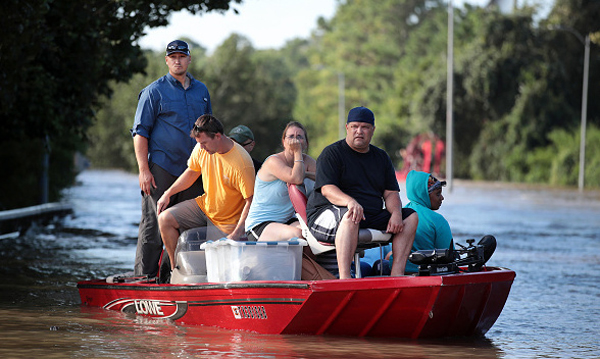- La Feria Community Holds Succesful Business Mixer Event
- Little Nashville to Take Place in Downtown Mercedes
- Lions Basketball Captures District Gold
- La Feria ISD Students Compete in Regional Chess Tournament
- Lions End First Half of 32-4A on a High Note
- La Feria ISD Held Another Successful Parent Conference
- Strong Appearance for Lions at Hidalgo Power Meet
- LFECHS Students Get to Meet Local Actress
- Students Participate in Marine Biology Camp
- Two LFECHS Students Qualify for All-State Band
Texas Seeks to Improve Health-Care Access for Harvey Survivors
- Updated: September 19, 2017

Texas officials are trying to make it easier for Hurricane Harvey evacuees to get access to health care. Photo: Olson/GettyImages
by Mark Richardson
HOUSTON – Texas officials are asking health insurance companies to be flexible in helping people affected by the floodwaters from Hurricane Harvey.
Many of the thousands who fled their homes during the storm may no longer have access to prescription drugs or medical equipment or be able see their family doctor or specialist.
Stacey Pogue, senior policy analyst for the Center for Public Policy Priorities, said the Texas Department of Insurance is asking insurers to cover emergency and non-emergency out-of-network care and simplify requirements for prior authorizations, referrals and medical-necessity reviews, to name a few.
“Agencies are asking insurance companies to provide some more flexibility,” she said, “And so, agencies are saying, ‘Hey, insurance companies, you need to relax the normal ‘rules of the road’ to make sure people can get health care they need after an emergency.’ ”
Pogue said insurers also are being asked to relax time limits on prescription refills and simplify access to medical equipment and supplies. The state is suggesting giving extra time for policyholders to make their premium payments. Most providers already have programs and policies in place to help people affected by the storm, she said, but added that there are steps evacuees and others who have trouble accessing care should take.
“I’d recommend that anybody in that situation where you can’t get the health care you need, call the number on the back of your insurance card and explain that,” she said, “because insurance companies and Medicaid and Medicare all have the intention of being much more flexible to ensure people can get ongoing, needed health care.”
If a health insurer denies services, Pogue said, they must provide the patient with contact information for the appropriate state or federal agency to appeal that decision. She said people with employer-provided coverage should also contact the company’s health plan administrator or human resources department.
Information on state bulletins is online at here and here.


